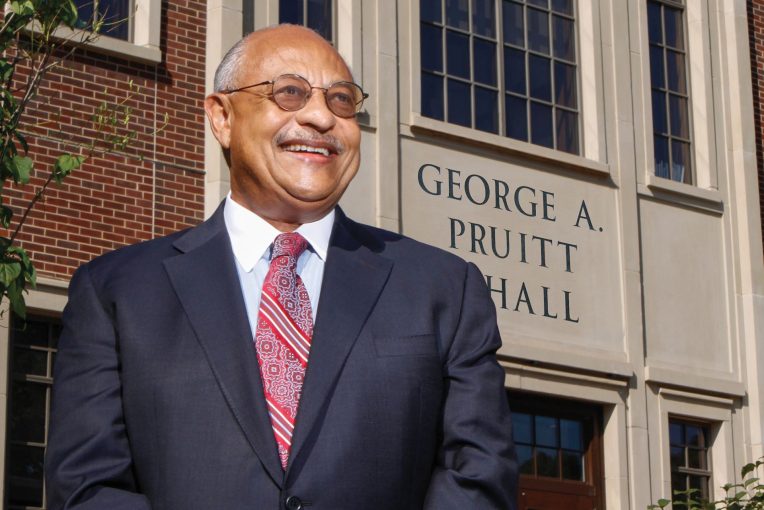Dr. George Pruitt ’68, M.S. ’70, LHD ’94, saw the inside of a university president’s office for the first time in 1967 when he occupied Illinois State University’s Office of the President with other members of the Black Student Association to demand increased diversity on campus.
Appears InIt would not be his last time in such an office. Pruitt’s activism as an Illinois State student served him well during a half century of advocating for students while working in higher education, a career that included 35 years as president of Thomas Edison State University.
“I saw what ISU did for people, what it did for me, and the power and transformative nature of making education accessible for everyone,” Pruitt said. “I wanted it to be accessible to more than just a small sliver of society.”
That sentiment guided Pruitt throughout his professional career, which started at Illinois State as an assistant to the Dean of the Faculty and associate director of a Black student recruitment program. He went on to positions at Towson University, Morgan State University, and Tennessee State University, all before becoming the president at Thomas Edison in 1982.
He impacted students on all those campuses, but his influence extended ever further; Pruitt advised five secretaries of education under three United States presidents during his career.
Retired since 2018, Pruitt has documented lessons learned, challenges met, and his overall experience in higher education in From Protest to President: A Social Justice Journey through the Emergence of Adult Education and the Birth of Distance Learning.
“I wanted to write a book about calling, values, vision, service, and sacrifice,” Pruitt said. “It’s about doing the right thing, even when it’s not easy.”
Pruitt’s time at Illinois State is highlighted throughout the book’s pages. His legacy—beginning with that occupation of the president’s office in 1967—lives on today.
“I want the actual history documented, and with this book, I was able to capture a snapshot of what happened,” Pruitt said. “I want people to know what happened, who these people were, and the impact they made on the University.”

